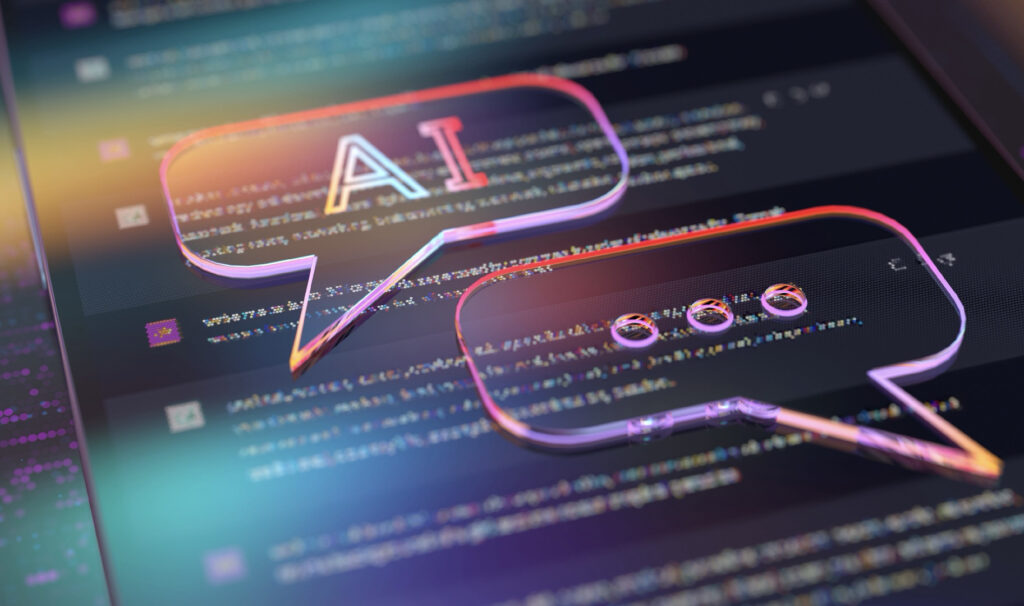
ComAI Research Space (ComAI coordination project)
- Automation and Datafication of Communication
- ComAI
- Research project
- Duration: 2025 – 2028
- Project lead: Prof. Dr. Andreas Hepp, Prof. Dr. Christian Katzenbach, Prof. Dr. Wiebke Loosen, Prof. Dr. Cornelius Puschmann, Dr. Gregor Wiedemann
The ComAI Research Space as part of the Coordination Project serves to coordinate the parts of the data collection that are carried out jointly to make data available to the projects and to create an open repository.
Its focus is to investigate media and communication technologies of communicative AI in the process of their emergence. The ComAI Research Space not only examines the use and appropriation of widely-spread technologies. It also has a sensitivity towards the rise of possible emergent practices and future developments. For these purposes, the ComAI Research Space has three components:
- Documenting discourse: Which ComAI is being talked about publicly, by whom, and how? In order to systematically research how public debate engages with and makes sense of ComAI as well as the evolving narratives surrounding the automation of societal communication, we conduct a large-scale semi-automated content analysis of public communication across the countries in the core sample of the Research Unit (Austria, Germany, UK and the US), and additionally in German and English-language social media.
- Monitoring technologies: Which new ComAI technologies are emerging, which are declining in importance and what is their context of use? The ComAI Research Space conducts a qualitative panel with trend scouts and by this incorporates elements of citizen science. The aim of the panel is to monitor which new technologies of communicative AI are becoming established in the various domains of society.
- Exploring futures: What are the assumed future developments of ComAI? On the one hand, scenario workshops are held in which “creative methods” are used to identify possible futures for communicative AI. On the other hand, audit workshops are conducted in which future issues are reflected upon with stakeholders. With these workshop formats, the ComAI Research Space critically questions assumptions of “futurology” on communicative AI.
Publications:
- Bareis, J., & Katzenbach, C. (2022). Talking AI into Being. Science, Technology & Human Values, 47(5), 855-881. doi:10.1177/01622439211030007
- Couldry, N., & Hepp, A. (2016). The mediated construction of reality. Cambridge.
- Hepp, A., Loosen, W., Dreyer, S., Jarke, J., Kannengießer, S., Katzenbach, C., . . . Schulz, W. (2023b). ChatGPT, LaMDA and the hype around Communicative AI. Human-Machine Communication, 6, 41-63. doi:10.30658/hmc.6.4
- Jarke, J., & Breiter, A. (2019). The datafication of education. Learning, Media and Technology, 44(1), 1-6. doi:10.1080/17439884.2019.1573833
- Loosen, W., & Solbach, P. (2020). Künstliche Intelligenz im Journalismus? In T. Köhler (Ed.), Fake News, Framing, Fact-Checking (pp. 177-203). Bielefeld.
- Pfadenhauer, M., & Lehmann, T. (2022). Affects after AI. In The Routledge Social Science Handbook of AI (pp. 91-106). London: Routledge.
- Puschmann, C., Karakurt, H., Amlinger, C., Gess, N., & Nachtwey, O. (2022). RPC-Lex. Convergence, 28(4), 1144-1171. doi:10.1177/13548565221109440
- Schulz, W., & Schmees, J. (2022). Möglichkeiten und Grenzen der Künstlichen Intelligenz in der Rechtsanwendung. In I. Augsberg & G. F. Schuppert (Eds.), Wissen und Recht (pp. 561-593). Wiesbaden.
- Wiedemann, G., Münch, F. V., Rau, J. P., Kessling, P., & Schmidt, J.-H. (2023). Concept and challenges of a social media observatory as a DIY research infrastructure. Publizistik, 68, 201-223. doi:10.1007/s11616-023-00807-6

